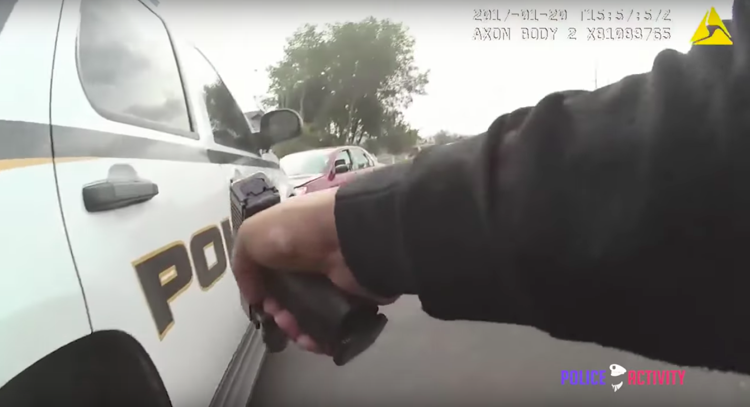Amendment 1 could force changes to Illinois’ SAFE-T Act police regulations; lawmakers back in Springfield Tuesday

Local governments in Illinois should brace for the unknown with some expecting conflicts between the SAFE-T Act and a looming constitutional amendment enshrining collective bargaining rights.
Illinois state lawmakers are back in Springfield Tuesday for the final three days of session before the SAFE-T Act’s no-cash bail law takes effect Jan. 1.
When lawmakers were at the capitol the week before Thanksgiving, state Sen. Robert Peters said they’ll bring about some “technical” changes to the Pretrial Fairness Act, but didn’t elaborate.
“It’s similar to me, it’s like a family argument and we’ll get through it, and the ideas, at the end of the day, all I hope for is that this stays intact and it’s implemented in the intent that we saw when we passed it,” Peters, D-Chicago, said.
The Pretrial Fairness Act was part of the SAFE-T Act the General Assembly passed in early January 2021. State’s attorneys and sheriffs across the state have a consolidated lawsuit challenging the measure’s implementation. That’s expected to be heard in Kankakee County court next week.
But, Illinois Policy Institute staff attorney Mailee Smith said other provisions of the SAFE-T Act impacting law enforcement could be reversed if the proposed amendment to the Illinois Constitution that prohibits limits to collective bargaining is enacted.
“Amendment 1 could allow government union contracts, and that includes police contracts, to override state laws and that includes portions of the SAFE-T Act,” Smith told WMAY.
The proposed amendment codifying collective bargaining for a variety of issues is projected to be approved with more than 50% of all votes cast in the midterm general election earlier this month.
Some of the SAFE-T Act’s provisions that could be challenged with the enshrined rights include the requirements for police-worn body cameras, anonymous complaints against police or restrictions on the use of force or deescalation techniques.
“Those police unions would have the ability to demand that there are basically contrary provisions in their collective bargaining agreement that would override state law like the SAFE-T Act,” Smith said.
Local governments should brace for unique challenges ahead, she said.
“No other state has done this and this opens our state and our municipalities and our local government units up to having to negotiate things that have never been tested before,” Smith said.
The final tally approving Amendment 1 is expected when the votes are certified by the Illinois State Board of Elections next week.
Miss Clipping Out Stories to Save for Later?
Click the Purchase Story button below to order a print of this story. We will print it for you on matte photo paper to keep forever.

